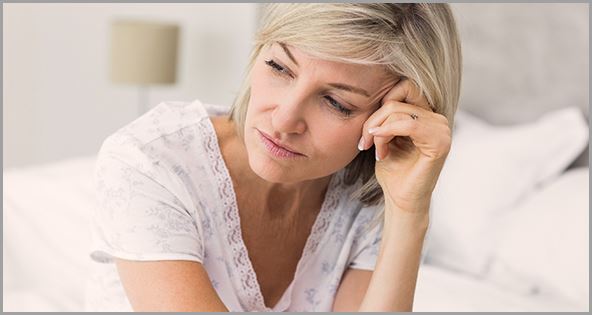
Women’s Wisdom for the Ages Part II
Part II: Frequent urination, sleep troubles, and 4 periodic problems
Ah, youth. When you’re a female in your teens or early adulthood, so much can be written off to, well, youth. The sight of your latest crush quickens your heartbeat or flushes your face. Too many late nights studying or socializing causes fatigue.
Of course, more mature women sometimes experience the same things. The causes could be identical or they might be different, often as a result of hormonal changes.
With the help of Heather Pugmire, MD, an obstetrician-gynecologist (OB/GYN) at the Bingham Memorial Women’s Center, here are a few common symptoms related to mood swings and broken bones you might want to take note of as you age (gracefully, of course), and what to do next.
FREQUENT URINATION
Then: Drinking too much of any beverage can keep you running to the bathroom regardless of your age.
Now: As you get older, your pelvic floor may weaken, causing bladder irritation and uterine prolapse. “Your pelvic floor is like a hammock, and if it droops, then your bladder and uterus will droop along with it,” Dr. Pugmire says. “This can lead to urinary tract infections and increased urinary frequency, or leaking.”
What to do: Do Kegel exercises to strengthen your pelvic floor. Squeeze and relax your pelvic muscles, and your rectal muscles, for a set of 10 twice a day. If that doesn’t help, talk to your doctor about medications or outpatient procedures to relieve urinary incontinence.
SLEEP TROUBLES
Then: Sleep issues could be as simple as caffeine-induced insomnia during exams or extreme fatigue brought on by mononucleosis.
Now: Many women have sleep disruptions before and during menopause due to fluctuating hormones. Hot flashes don’t make it easy to get a good night’s sleep, either.
What to do: Proper sleep hygiene may help you sleep better if hormones are keeping you awake. Make sure your bedroom is dark and quiet, and avoid caffeine and alcohol close to bedtime. Try keeping a cloth with a bowl of ice next to your bed to cool down quickly when hot flashes hit. A low-dose birth control pill also may ease your symptoms.
4 PERIODIC PROBLEMS
Some changes in your menstrual period are normal, especially as you age. Others, however, could be the sign of a potential problem.
Heavy bleeding. If you’re soaking your pad or tampon every hour or two, that’s excessive, says Dr. Pugmire. Especially if it goes on more than a few days, talk to your doctor. Prolonged heavy bleeding could be a sign of uterine fibroids and could lead to anemia.
Bleeding after menopause. Dr. Pugmire doesn’t consider menopause official until 12 months have passed without a period. If you begin bleeding again after that, see your doctor to rule out uterine cancer or other issues.
Skipping periods. Other than a possible pregnancy, missing one period isn’t usually a big deal, Dr. Pugmire says. If you skip two periods, that warrants a checkup. But if you miss a period and have abdominal pain, don’t wait. It could be a tubal pregnancy, which is very serious.
Spotting between periods. Stress or taking birth control pills improperly may cause occasional spotting. If spotting continues for more than a month or so, have it checked out.
Dr. Pugmire is an obstetrician-gynecologist (OB/GYN) at the Bingham Memorial Women’s Center. As an OB/GYN, Dr. Pugmire is qualified to care for all of women’s healthcare needs. She also understands the challenges facing today’s women, and encourages patients to be open with her so she can provide the best care for them.Dr. Pugmire is always welcoming new patients, and to schedule a consultation, please call 782-3900.



